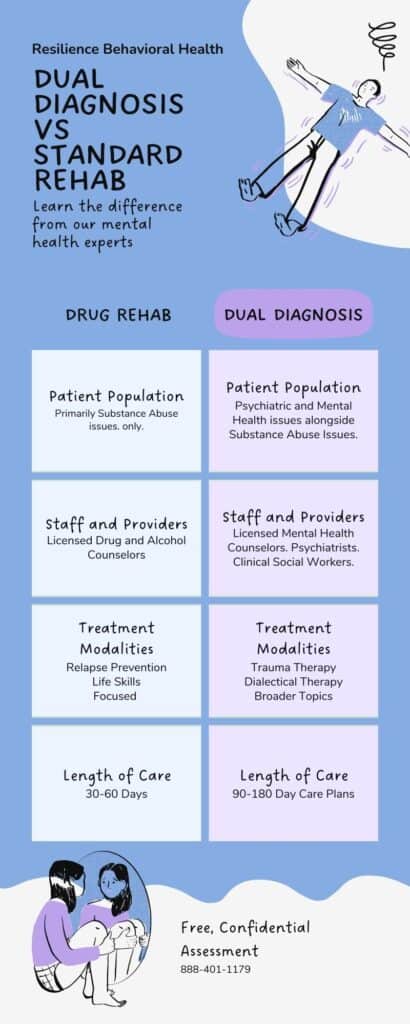Understanding Co-Occurring Disorders and Treatment in Massachusetts
Co-occurring disorders, also known as dual diagnosis or comorbidity, refer to the presence of both a mental health disorder and a substance use disorder in an individual simultaneously. This complex interaction can complicate diagnosis and treatment, as the conditions often influence and worsen each other. Ahead, we’ll be discussing key characteristics of dual diagnosis and what popular treatment can you seek in a Massachusetts center.
Key Characteristics of Co-Occurring Disorders
Simultaneous Presence
Co-occurring disorders involve the concurrent existence of a mental health disorder and a substance use disorder. The mental health issues could range from anxiety and depression to more severe conditions like bipolar disorder or schizophrenia.
Reciprocal Influence
The presence of a mental health disorder can influence the development and progression of substance use issues and vice versa. This mutual influence can create a cycle that is challenging to break without targeted and integrated treatment.
Increased Complexity
Individuals with co-occurring disorders often experience increased complexity in their symptoms and treatment needs. Addressing both the mental health and substance use aspects is crucial for effective and sustainable recovery.
Risk Factors
Certain risk factors may contribute to the development of co-occurring disorders. These can include genetic predisposition, environmental factors, trauma, early exposure to substance use, and a lack of proper coping mechanisms.

Examples of Co-Occurring Disorders
A. Depression and Alcohol Use Disorder
Individuals with depression may turn to alcohol as a form of self-medication, leading to the co-occurrence of depression and alcohol use disorder.
B. Post-Traumatic Stress Disorder (PTSD) and Substance Abuse
Trauma, such as experiences of violence or combat, can contribute to the development of PTSD. Individuals with PTSD may use substances to cope with their symptoms, resulting in co-occurring disorders.
C. Bipolar Disorder and Cocaine Addiction
The manic highs and depressive lows of bipolar disorder may drive individuals to seek the euphoria provided by substances like cocaine, leading to a dual diagnosis of bipolar disorder and substance use disorder.
Popular Treatment Methods For Dual Diagnosis In Massachusetts Center
Treating co-occurring disorders requires a comprehensive and integrated approach that addresses both the mental health and substance use aspects concurrently. Here are some key types of treatment:
- Integrated Dual Diagnosis Treatment (IDDT)
- Medication-Assisted Treatment (MAT)
- Individual Psychotherapy
- Group Therapy
- Holistic Therapies
Final Words
Dual Diagnosis Treatment Centers in Massachusetts are specifically designed to provide comprehensive care, recognizing the interconnected nature of these disorders and tailoring interventions to meet the unique needs of individuals with co-occurring disorders.

